Interview with the Nobel Prize winner in Economics, Maskin.
Pay attention to international focus and gain insight into the world. Hello, everyone, and welcome to this issue of High-end Interview.
Eric Maskin, winner of the 2007 Nobel Prize in Economics, came to China to attend the Second International Conference on Basic Science. How does he understand the significance and role of basic science in social development? "Mechanism design theory" has been put forward for many years. How does he interpret the application of this theory in different fields? How do you view the opportunities and challenges brought to society by high and new technologies such as artificial intelligence? Today, let’s find the answer in the dialogue together.
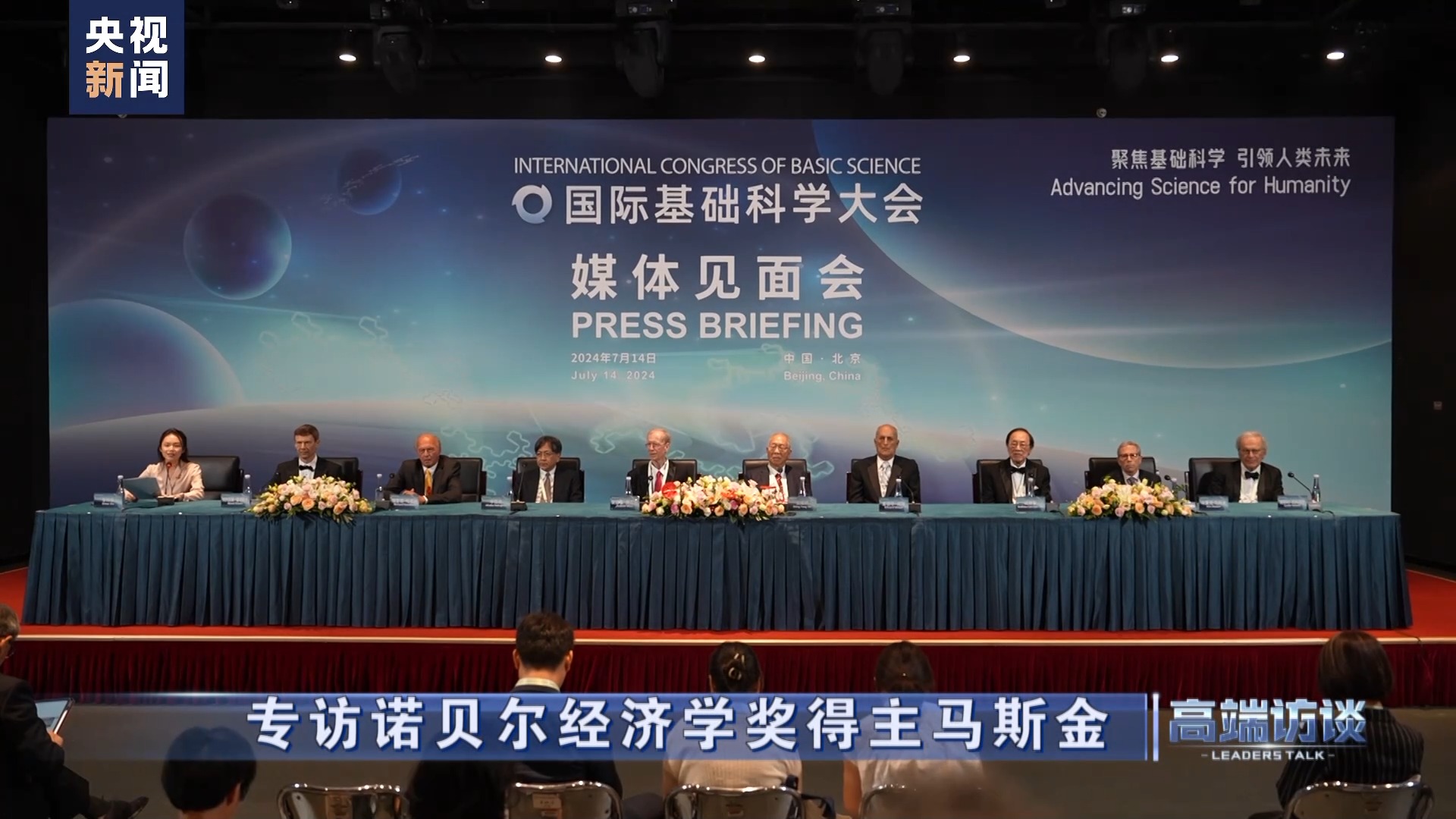
On July 14th, 2024, the International Conference on Basic Science kicked off in Tsinghua University. The conference attracted more than 800 domestic and foreign scholars to gather in Beijing. Among them, Eric Maskin, winner of the Nobel Prize in Economics, president of the World Econometrics Society and honorary professor of Tsinghua University, was one of the guests.
Following the spirit of Chairman Supreme Leader’s important speech on strengthening basic scientific research and building an international platform for cooperation in basic research, the International Conference on Basic Science is committed to accelerating the building of an exchange platform for top scientists in the world, promoting open cooperation in the field of basic science and making important contributions to the progress of human scientific civilization.
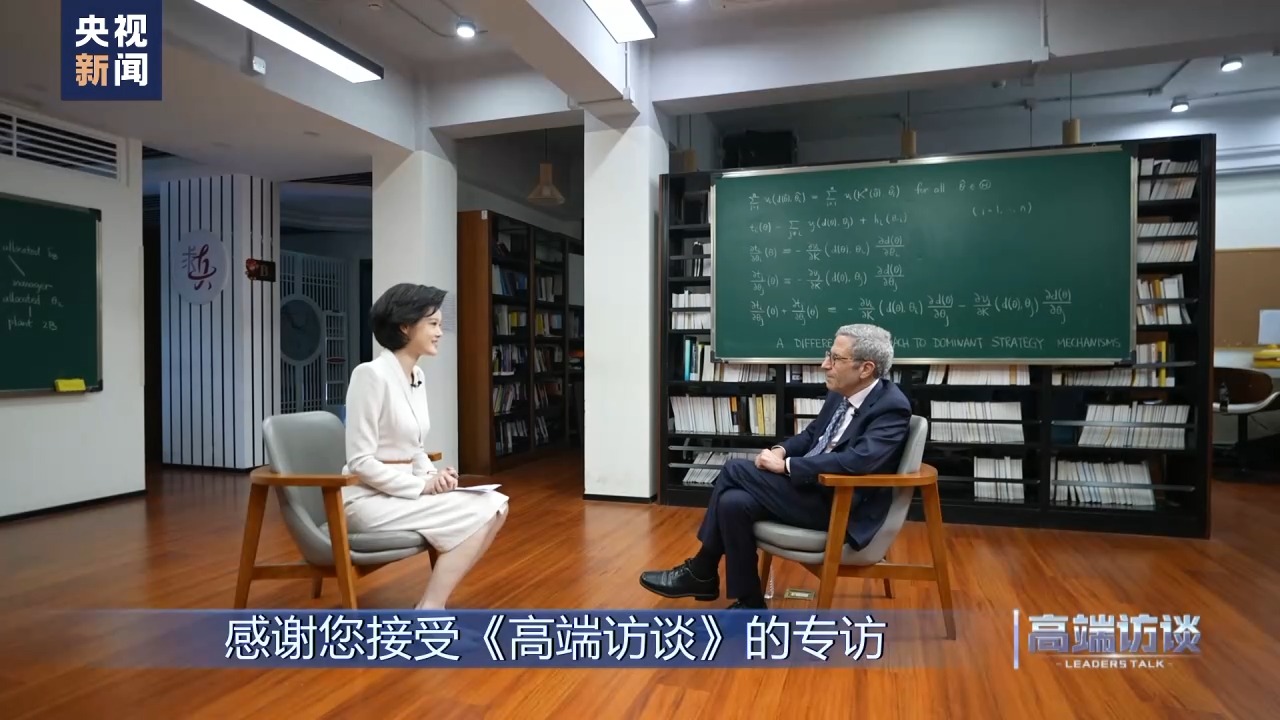
Zou yun:Professor Maskin, thank you for accepting an exclusive interview with High-end Interview. More than 800 top scientists and scholars have gathered in this international conference on basic science. What important information do you want to convey? Especially when applied science and technology are getting more and more attention, what do you think are the main goals, functions and values of basic science?

Maskin:First of all, I think one of the values of this conference is internationality. In today’s world, in the political and economic fields, divisions and tensions are increasing day by day, and science can unite us. Essentially, science is a cooperative undertaking. There are outstanding scientists all over the world, whether in China, the United States or Europe. This conference can bring these scientists together, which is of great value in itself. The importance of this conference lies in that it tells us that basic science has other important functions. Economist robert solow’s research in 1950s showed that most economic growth was driven by new ideas, which were crucial to economic growth. In the final analysis, new ideas are spawned by basic science. History tells us that all great scientific and technological progress will be based on basic science.
Zou Yun:Professor, you first came to China in 1996, and you have been here many times since then. Based on the contact and observation with China in the past 30 years, how do you evaluate the role of China’s opening to the outside world in strengthening international academic research exchanges and cooperation?
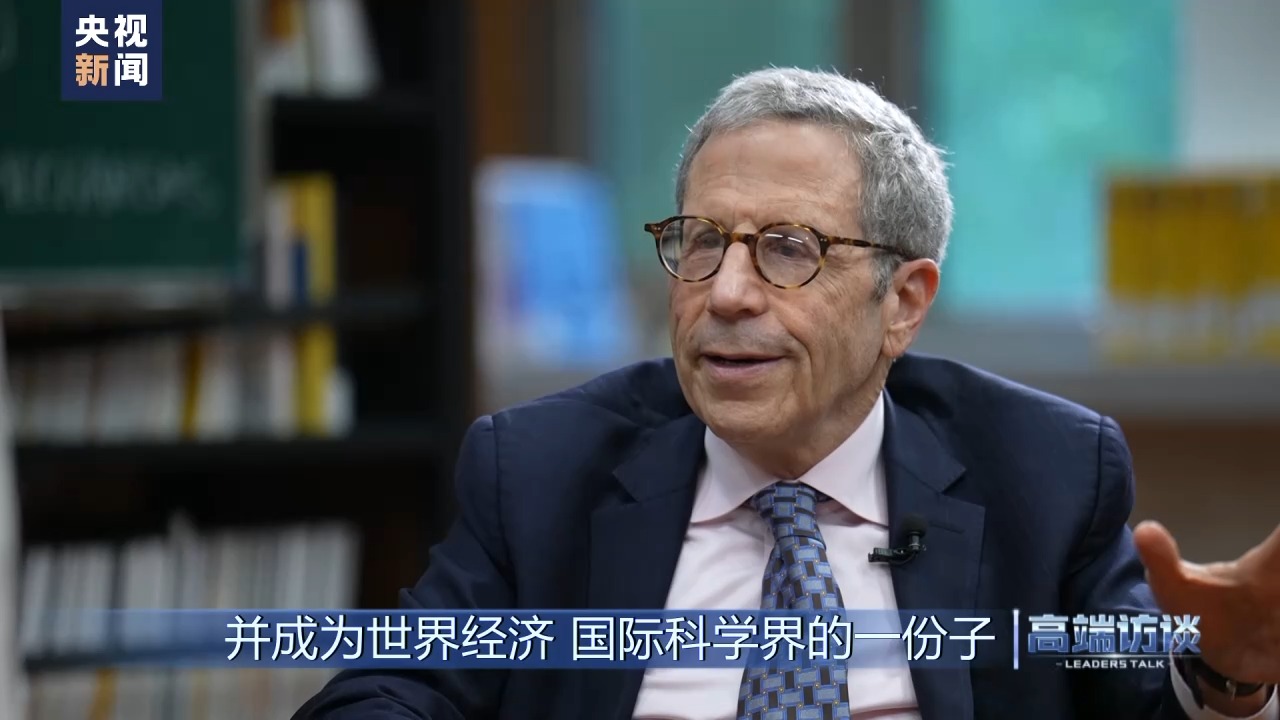
Maskin:Undoubtedly, China’s opening to the outside world and becoming a member of the world economy and international scientific community has greatly promoted the transformation of China and transformed China from a poor country 40 years ago into a prosperous and fast-developing economy today. That’s why I’m worried about those forces trying to split the world. I believe that the International Congress of Basic Sciences is a platform to confront these separatist forces, and let us get together again and carry out international cooperation.
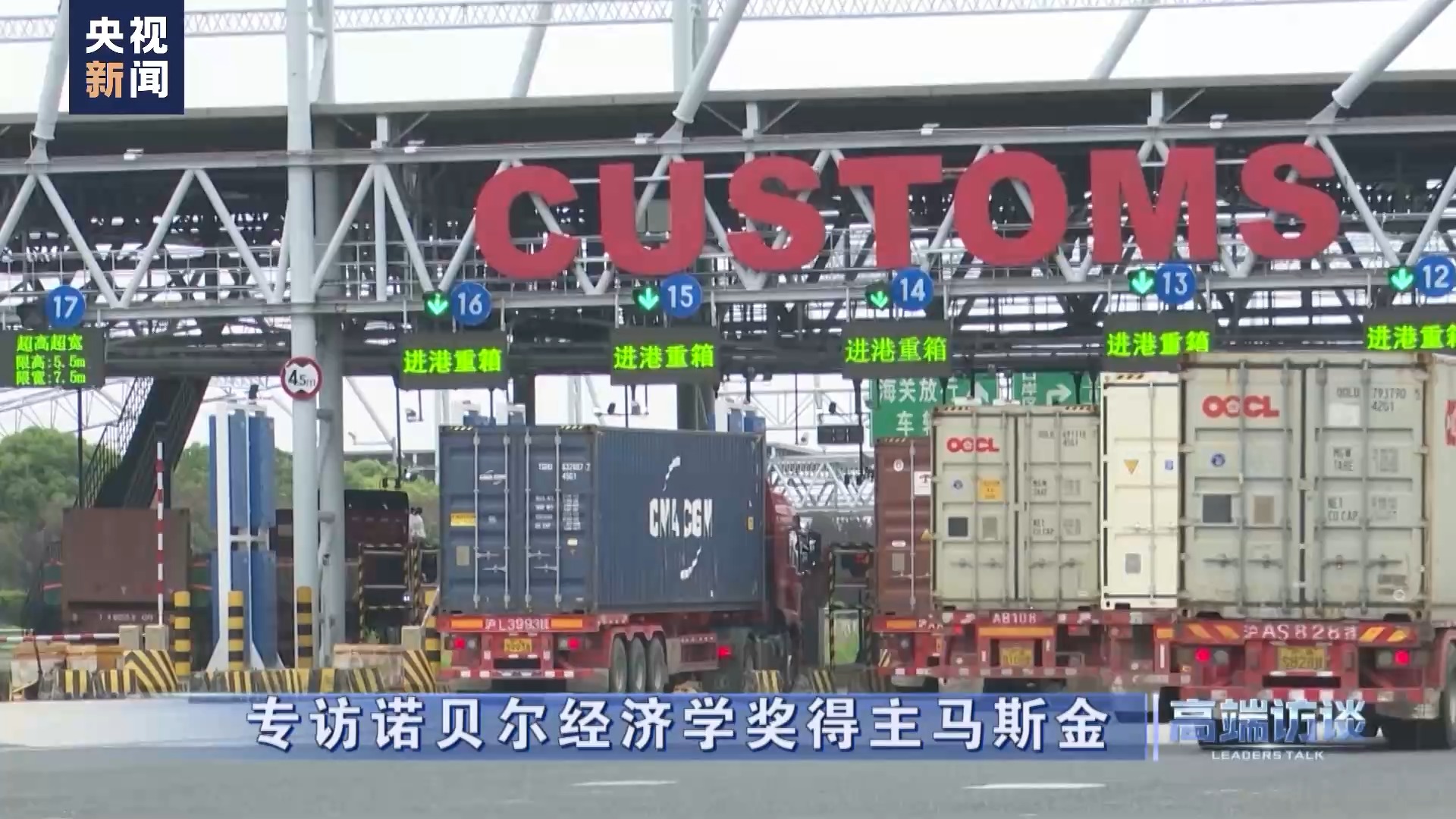
Today’s China is closely connected and deeply integrated with the world. At present, China is constantly promoting Chinese-style modernization with the new achievements of reform and opening up, injecting precious certainty into the chaotic and intertwined world.
Over the years, eric maskin has paid close attention to the economic development of China. He affirmed China’s wisdom contained in China’s reform and opening up, and praised China’s forward-looking vision of developing new quality productive forces.
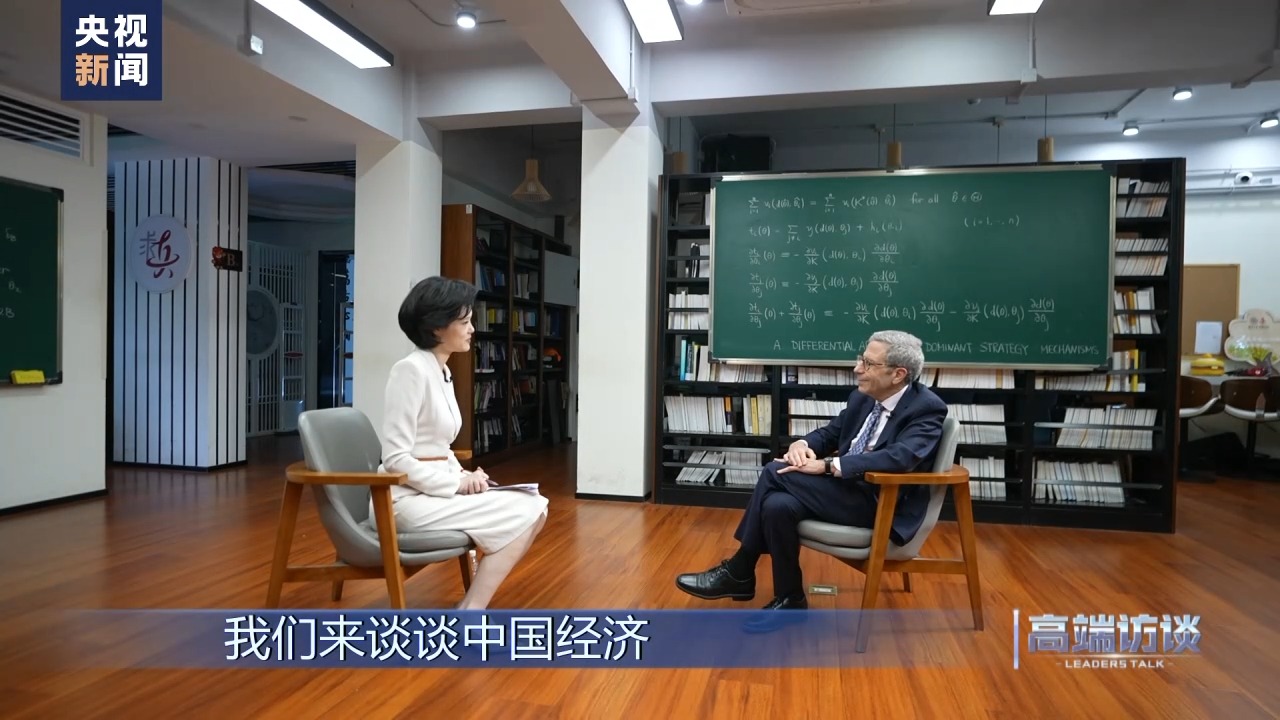
Zou Yun:Professor Maskin, let’s talk about China’s economy. You once said that the world can learn from China, and China has proved very successfully how a country can grow at an extraordinary speed year after year through reform.
Maskin:That’s right.
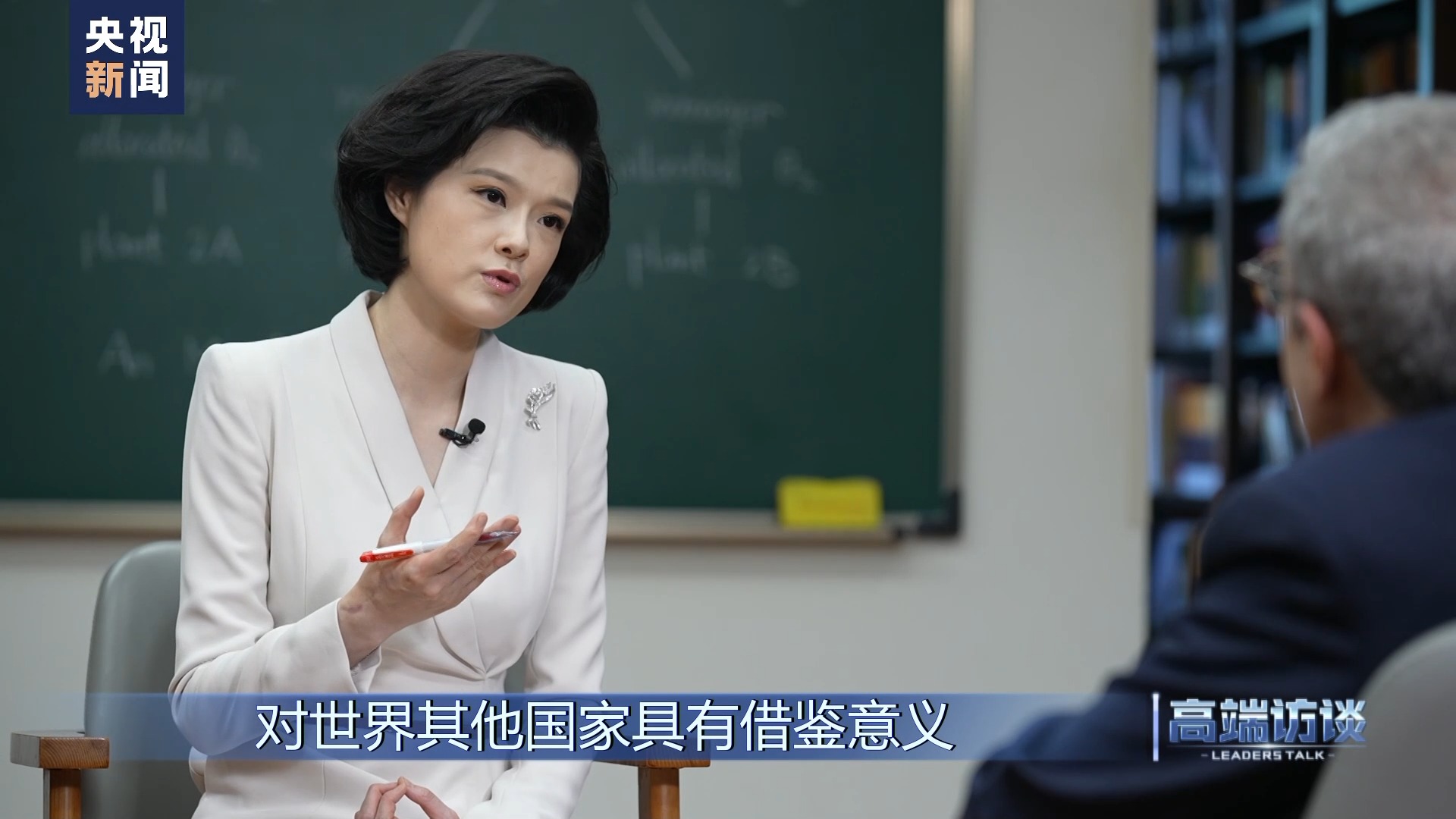
Zou Yun:So for you, what ways and methods of China can be used for reference by other countries in the world?
Maskin:Over the past 40 years, China has made amazing progress. There are several secrets to China’s success. First of all, China pursues a market economy. Market forces have played an important role in China’s economic development. Apart from the market economy, China’s opening to the world is also an important step in the right direction. Opening to the outside world and making good use of the international market are the most important experiences. Besides, in my opinion, the organizational structure of the China Government has been particularly successful. China has a central government and provincial and local governments. The economies of China provinces have their own characteristics, and the competition among them improves the economic efficiency. Under this framework, China can also carry out pilot projects in some places, which I think is another secret of China’s success. This is a good economic thinking.
Zou Yun:Professor Maskin, as an economist, I think you have noticed that a hot word in China’s economy is attracting global attention, which is called "new quality productivity". This concept was put forward by the Chairman of the Supreme Leader, emphasizing the importance of high technology, high efficiency and high quality under the new development concept. How do you understand the importance of this concept?
Maskin:I think this is very meaningful. The dominant technology in the twentieth century is being replaced by the technology in the twenty-first century. For China, it is very meaningful to be at the forefront and invest capital and resources in new technologies. For example, China has become a leader in the production of electric vehicles. I think this is very reasonable. China’s investment in this field is very wise, because the world needs electric cars.
Zou Yun:But when it comes to electric vehicles, some countries in the United States and the European Union are now investigating electric vehicles made in China. What do you think of this?

Maskin:I have always been a great advocate of transnational trade and cooperation. From the perspective of international trade and cooperation, I think setting up trade barriers will be counterproductive. Therefore, I don’t agree to use this kind of intervention. I hope these tariffs will eventually be abolished, so that we can resume free trade again. Maybe I am too optimistic about this, but I think it will be the best result. In other words, I think this intervention in free trade is only temporary, not permanent.
Zou Yun:Professor, for "relying solely on the market ‘ Invisible hand ’ You have always been critical of the idea that all problems can be solved.
Maskin:That’s right.
Zou Yun:Can you elaborate on this view? What role do you think the government should play in the market economy?
Maskin:The market is very powerful and can play a very good incentive role, which is the key of "mechanism design theory". But in some cases, the market will also fail. To give an obvious example, the market will be affected by "externalities". In economics, "externality" means that the behavior of (an economic subject) affects others, but there is no incentive to make the behavior subject change. For example, we all know that greenhouse gases such as carbon dioxide are causing climate change, but most enterprises will still emit greenhouse gases, and consumers will still drive fuel-efficient cars. In most cases, there is no incentive to stop emitting greenhouse gases spontaneously. So how should we solve this problem? At this time, government intervention is very important.
Zou Yun:In other words, in order to run the market smoothly, we must let the government and the market play their roles at the same time.
Maskin:That’s right. In fact, the government must establish a market for carbon emissions, for example, by setting quotas and introducing trading mechanisms, a carbon emission trading market can be established.
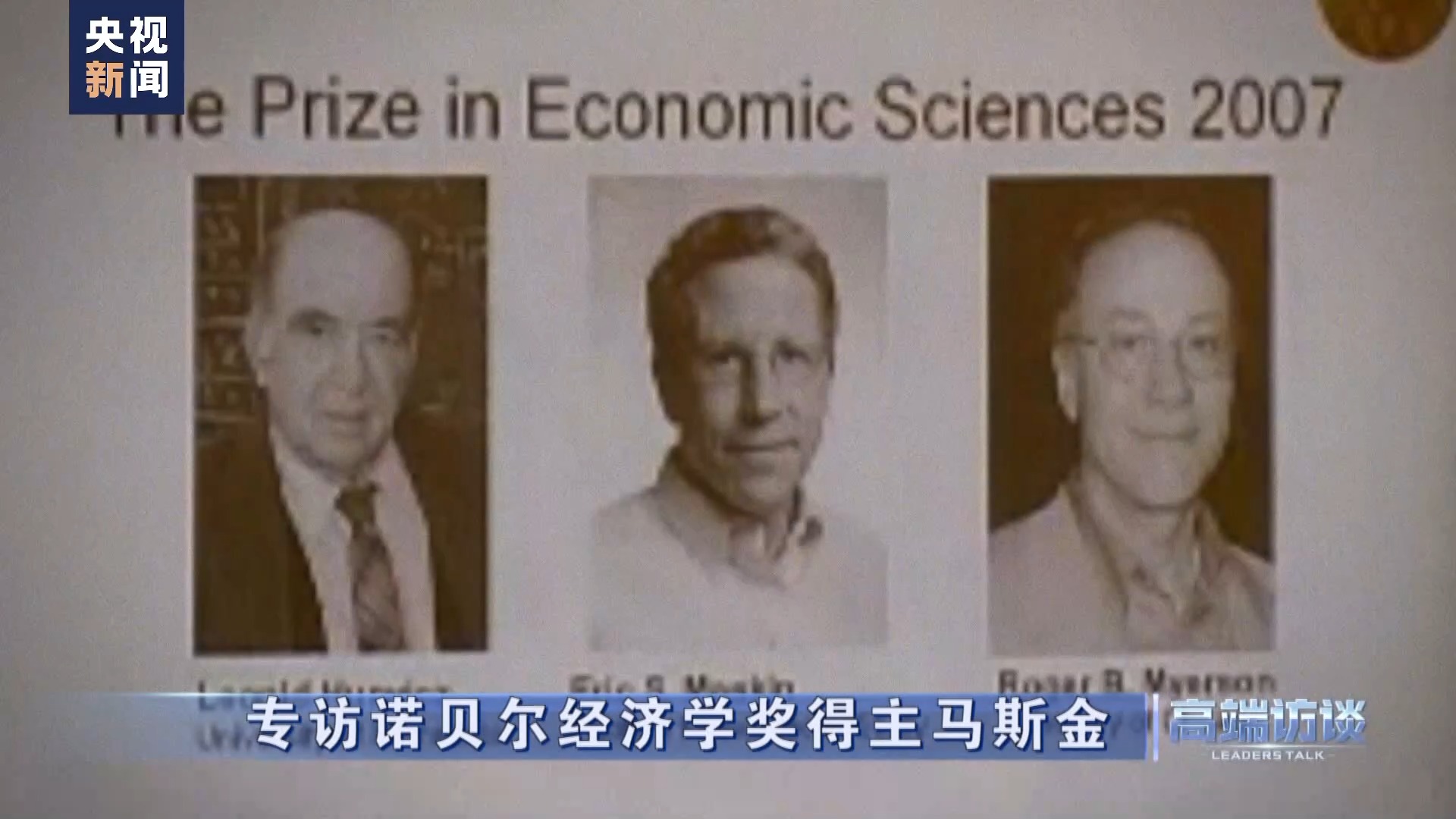
In 2007, eric maskin and two other economists won the Nobel Prize in Economics for laying the foundation of "Mechanism Design Theory".
In the course of many years’ development, this theory presents rich and varied extensions and connotations. From international cooperation to interpersonal communication, "mechanism design theory" can provide decision-making reference.
Eric maskin, 73, is still deeply involved in the theoretical field. As a scholar, he has a profound foundation and has made great achievements in the fields of public choice theory, game theory, incentive and information theory. As a teacher, he has trained many first-class economists who are active all over the world. He said that he enjoys research and often finds "beauty" in theory; I also like teaching and want to share "beauty" with others.
Zou Yun:In 2007, you and two other famous economists won the Nobel Prize in Economics for laying the foundation of "Mechanism Design Theory". Can you explain the main content of this theory to us in plain language and what fields it can be applied to?
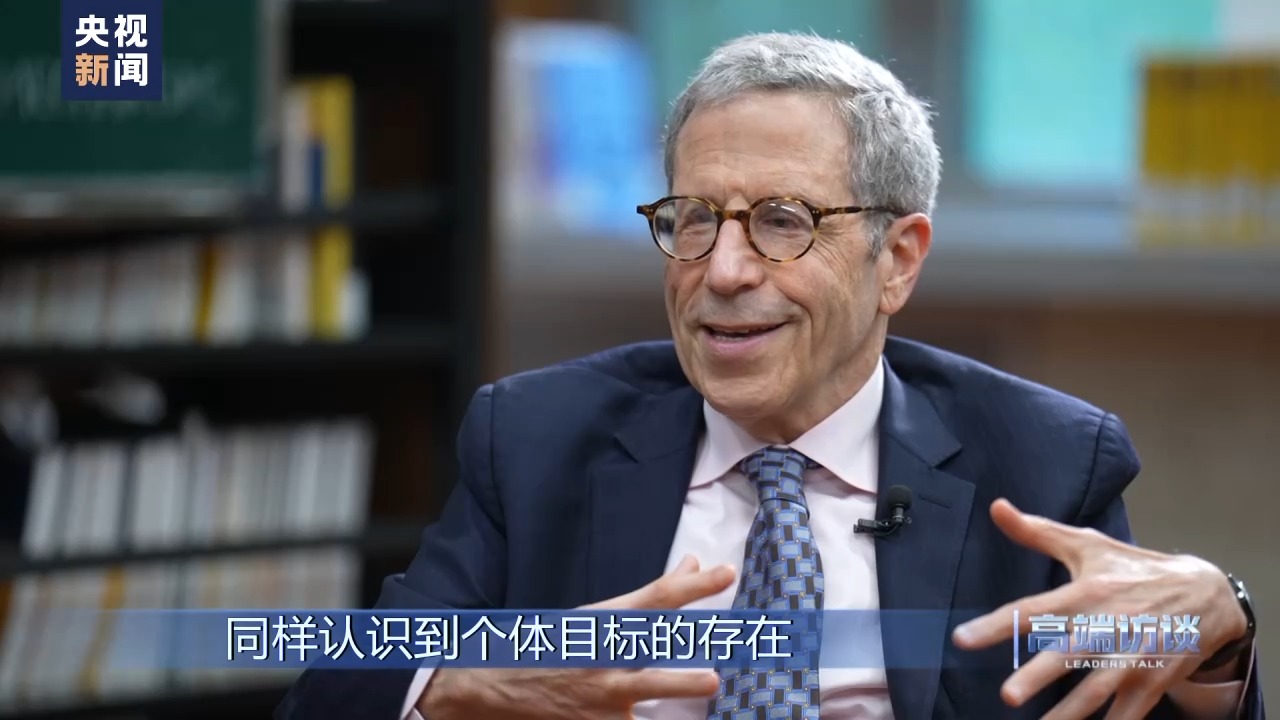
Maskin:"Mechanism design theory" is mainly about how to realize social goals while recognizing the existence of individual goals. What needs attention is how to coordinate the relationship between personal goals and social goals. This is the role of "mechanism design theory" in enterprises. For example, suppose you are the boss of an electric car company, and you want to motivate employees to work hard and bring benefits to the company. Employees of the company may care about the company’s income, but what they care about most is themselves. They want to earn rich income and support their families. They may be willing to work hard, but they don’t want to be too tired. So what you need to solve now is ……
Zou Yun:How to motivate employees?
Maskin:How to motivate employees. This is the function of "mechanism design theory". There are various ways to encourage them. You can pay them directly, or you can adopt the piecework system, that is, you can give them a corresponding reward for each job they complete. You can also give them shares in the company. In this way, if the company’s market value rises, they will also get benefits. Or you can combine all these methods. "Mechanism design theory" can help us understand what kind of incentive mechanism combination may be the most effective under what circumstances.
Zou Yun:Professor, let me show you a photo. I wonder if you can recognize it?
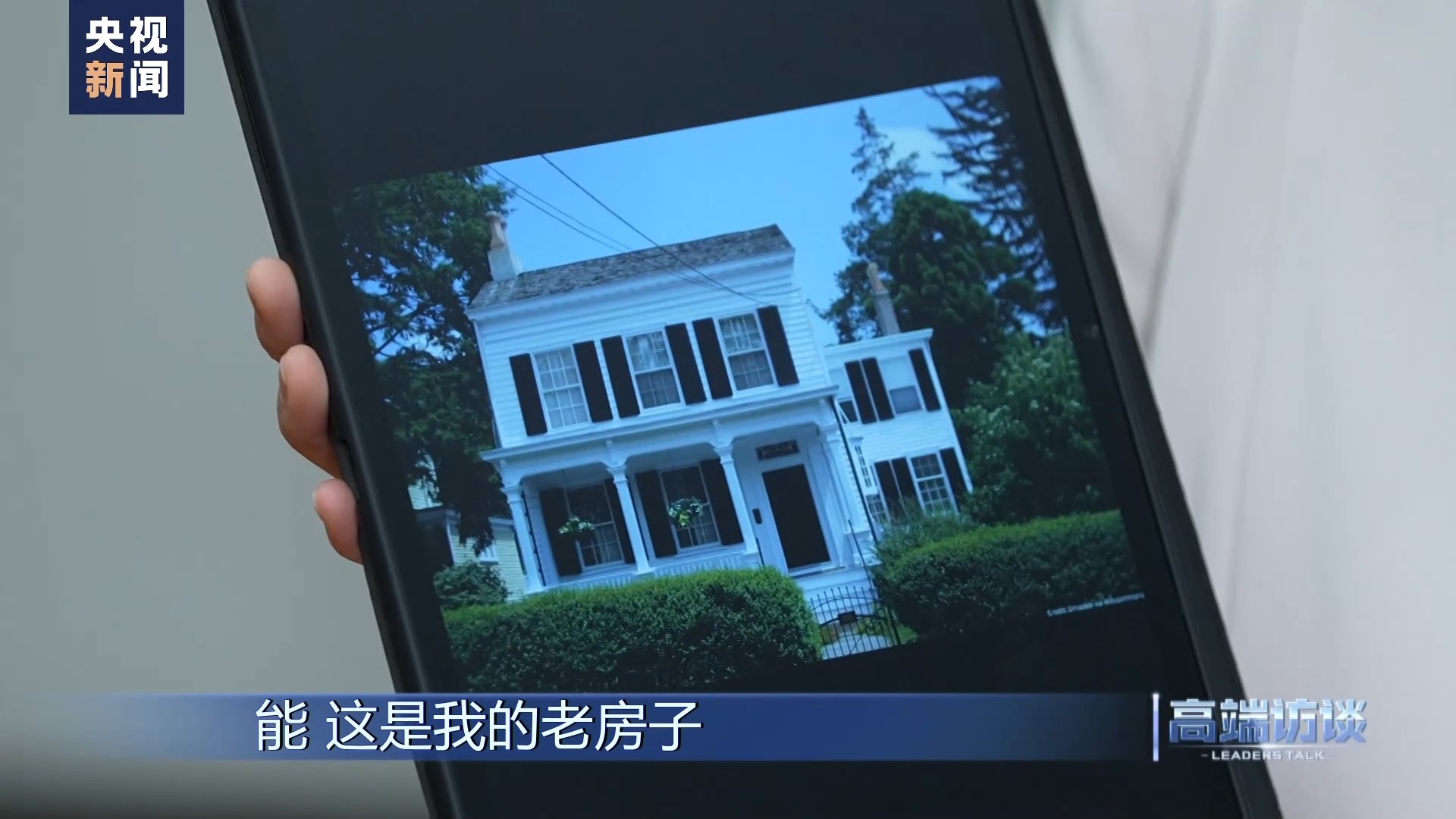
Maskin:Yes, this is my old house.
Zou Yun:This used to be Einstein’s old house and your residence at Princeton University.
Maskin:Yes
Zou Yun:I think it can be called "magic house", because it is here that you received a phone call from Stockholm (Sweden), and you were told that you won the Nobel Prize in Economics.
Maskin:That’s right.
Zou Yun:Do you remember that moment? What was the situation at that time?
Maskin:I still remember. I was sleeping at that time, and the phone call came from Stockholm early in the morning.
Zou Yun:Then they inform you that you have won the Nobel Prize in Economics.
Maskin:I was so sleepy that I didn’t react at first, but I was really excited to hear the news. I was especially happy when I learned that the other two winners were my friends and partners.
Zou Yun:In your speech at the Nobel dinner, you quoted a sentence: "Some people observe ‘ Already ’ , they asked ‘ Why is this? ’ And I imagine ‘ Before it happens ’ , I will ask ‘ Why not? ’” Why do you imagine things that don’t exist and regard them as the most attractive part of economic research?
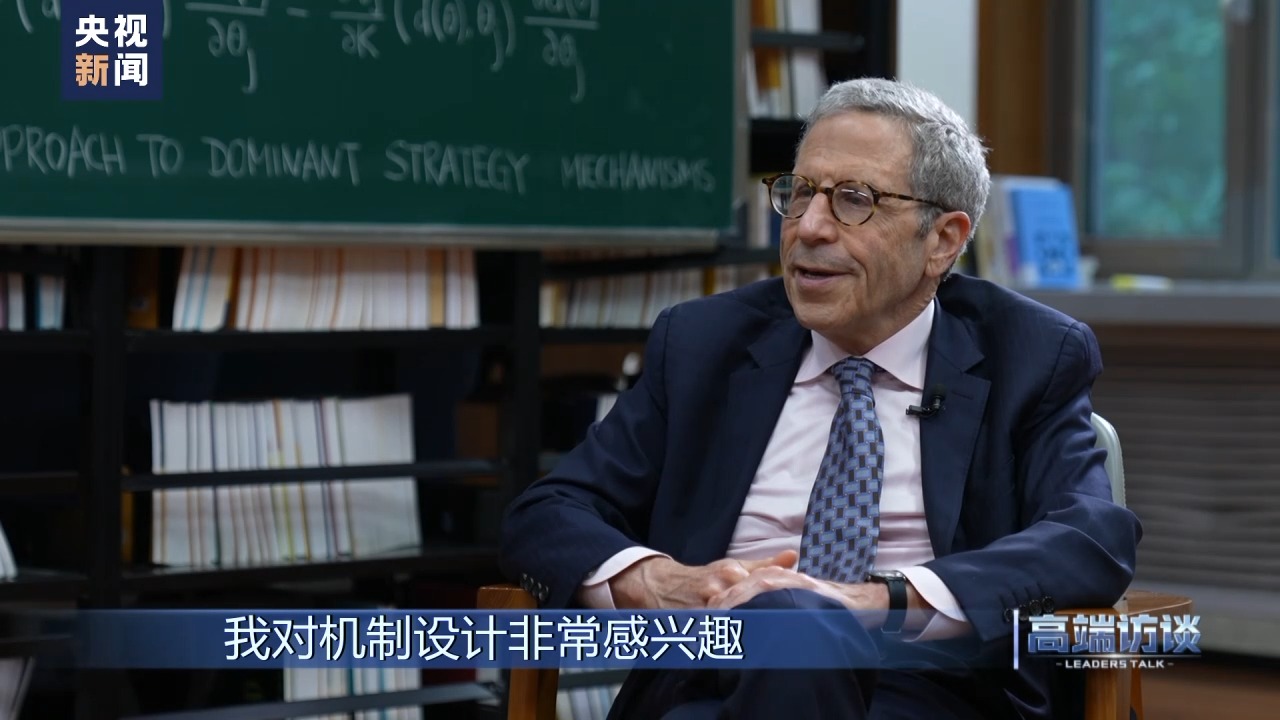
Maskin:As we talked before, I am very interested in mechanism design, which includes creating a brand-new market. For example, to solve the problem of climate change, we need to create an efficient market for carbon emissions. Such a market will not appear automatically unless we take the initiative to create it. In this case, only the government can participate in creating new markets. The most interesting social problems and the most serious social problems we are facing at present are all problems of mechanism design. We must design new mechanisms that never existed before and ask, "Why not let them exist?" Only in this way can we solve pressing global problems. For example, dealing with climate change, protecting biodiversity, solving the energy crisis, and obtaining clean water sources. These problems require us to put forward new ideas, especially the idea of mechanism design.
Zou Yun:You once said that winning the Nobel Prize is like winning the lottery. Your life has not changed much, but it is still affected negatively. To borrow your words, you will always be asked questions about areas you are not familiar with, because journalists think that Nobel Prize winners should know everything. I hope I didn’t bring you this trouble today.
Maskin:Your interview was very good, and it revolved around economics closely, so I chatted very comfortably.
Zou Yun:Thank you. Now that 20 years have passed, as a Nobel Prize winner, what do you like best about this identity?
Maskin:Winning the Nobel Prize gives me a chance to teach more students, which is good. Without these reputations, I wouldn’t have such great influence.
Zou Yun:Speaking of teaching, you once said that you are particularly grateful to your calculus teacher, who made you feel the beauty of mathematics. Now, as a teacher, do you adopt heuristic and comprehensive teaching methods (for students) as he has influenced you?

Maskin:When I teach, I will try my best to integrate all the knowledge into a big and beautiful system. I think human knowledge, especially scientific knowledge, is beautiful in a sense.
Zou Yun:I have noticed that as an economist, you often mention the word "beauty", which is very special. Why do you often mention "beauty"? You have been studying in the economic field for decades. What kind of "beauty" in the economic field attracts you most?
Maskin:Some economic concepts are very beautiful. This beauty lies in their simple presentation, but their influence is far-reaching. Let me give you an example. There is an early economic concept, which was put forward about 200 years ago. It is called "Comparative Advantage Theory". It says that if two countries trade, they should focus on producing products that they are relatively good at producing. For both countries, the efficiency has improved, which we call "trade gains". Both countries have become better because they focus on producing a certain commodity, and each country has its own comparative advantages. This is a very simple but powerful concept. In fact, it explains the common trade behavior of countries for centuries. I think this is a kind of beauty.
Zou Yun:It is really beautiful. You attribute your achievements to luck — — Explore the luck of economics in the early days, meet the luck of outstanding teachers, and explore the luck of your favorite field. Apart from those luck factors, what other factors have contributed to your success today?

Maskin:I think the most important thing is that I enjoy what I do. As I said just now, it is difficult to do research, because when you explore in an unknown field, you can’t predict what will happen. Therefore, when you are not sure about the results of the research, whether it is successful or not, you should have fun studying the matter itself, so as to get through the difficult time.
Zou Yun:What guided you through those difficult times?
Maskin:The truth is, I enjoyed the process very much. Imagine that you are walking through the Woods and want to go to the other side of the Woods, but you don’t know which way to go. How to get out of the Woods is full of uncertainty, and you don’t know if you can get to the other side. But imagine that walking in the Woods itself makes you feel very enjoyable. You look around … …
Zou Yun:Everything is beautiful.
Maskin:That’s right. As long as you enjoy the process, the final result is not so important. We all hope to succeed, but I think the most important factor of success is to walk in the Woods long enough so that we can have a chance to get to the other side. If we enjoy it, then we will keep going.
Zou Yun:Yes, professor. Thank you very much for your interview today, especially for introducing us to the beauty of "mechanism design theory". Thank you very much
Maskin:Thank you for inviting me to participate in this interview.
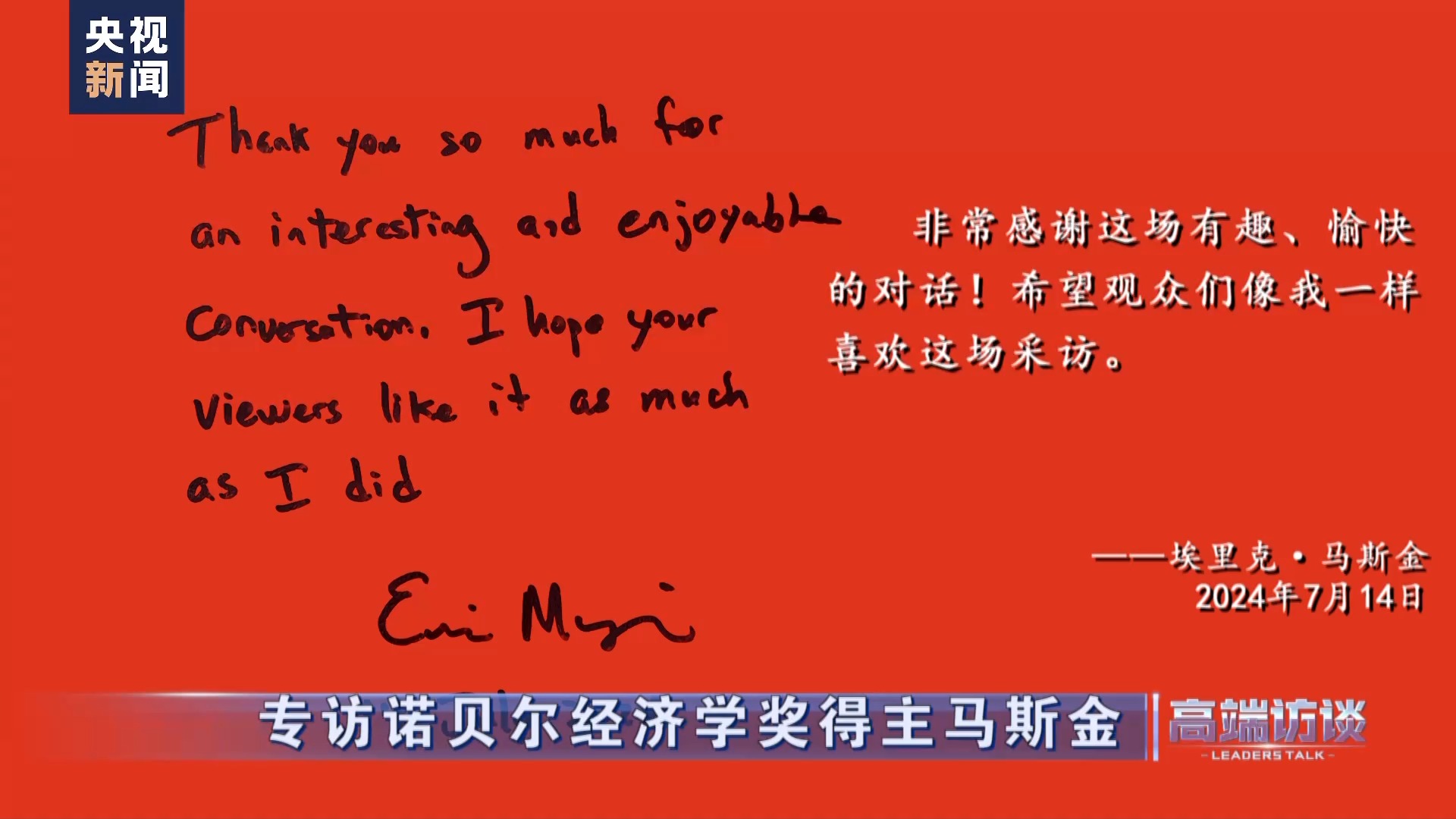
△ Nobel laureate in economics Maskin wrote an inscription after an exclusive interview with the general station.
In an exclusive interview, Professor Maskin said,The world is fortunate to have China’s economy, which plays an engine of growth in prosperous times and provides more certainty when facing challenges.. He encourages young people to keep curious and explore the "beauty" of art in different fields of research. He also hopes that all countries can cooperate, share openly and jointly promote the progress of the times.
Chief planner Shen Haixiong
Chief producer Li Ting
Producer: Shen Yong Zhang Qin
Chief Producer Pan Linhua Yan Min
Producer Yin Liping
Reporter Zou Yun
Camera: Li Yajun Lu Yiming Liu Ming Li Xiangwei
Planning Qi Jingkang
Director Gu Xuejia Hu Weiwei Gao Yushan Qian Siyu
Outreach, Han Shuo Zhuang Ying
Voice over Yao Yujun
New media, Xuan Xuan, You Zhong Yining
Technical Producer: Zhao Xuesong
Visual Packaging Juck Zhang Wang Xueyang
Later supervisor Zhao Xin
Post-production Li Zhaoquan Hao Yuanhan Yuan Yuexiang Ren Shiping Li Shuchen
Audio? Li Mingrui
Technical Support Jiang Kun Zhang Wenyu Zhuge Ming
Thanks to Tsinghua University Qiu Chengtong Mathematical Science Center.